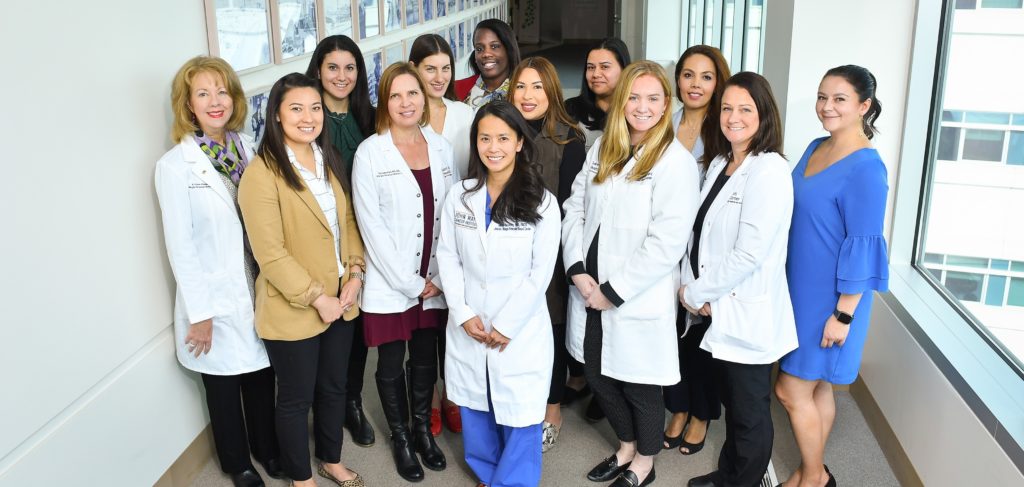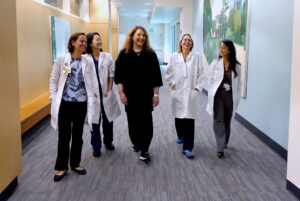Breast Cancer Prevention
There are various daily choices you can make to help decrease your risk of developing cancer. Some of these choices are not smoking, eating healthy, and staying active. In addition, it is important to stay up to date on recommended screenings that can detect certain cancers at an earlier date.
Meet Our Breast Health Care Team
The Margie Petersen Breast Center at Providence Saint John’s Health Center brings you some of the finest breast health and cancer care in Southern California.






